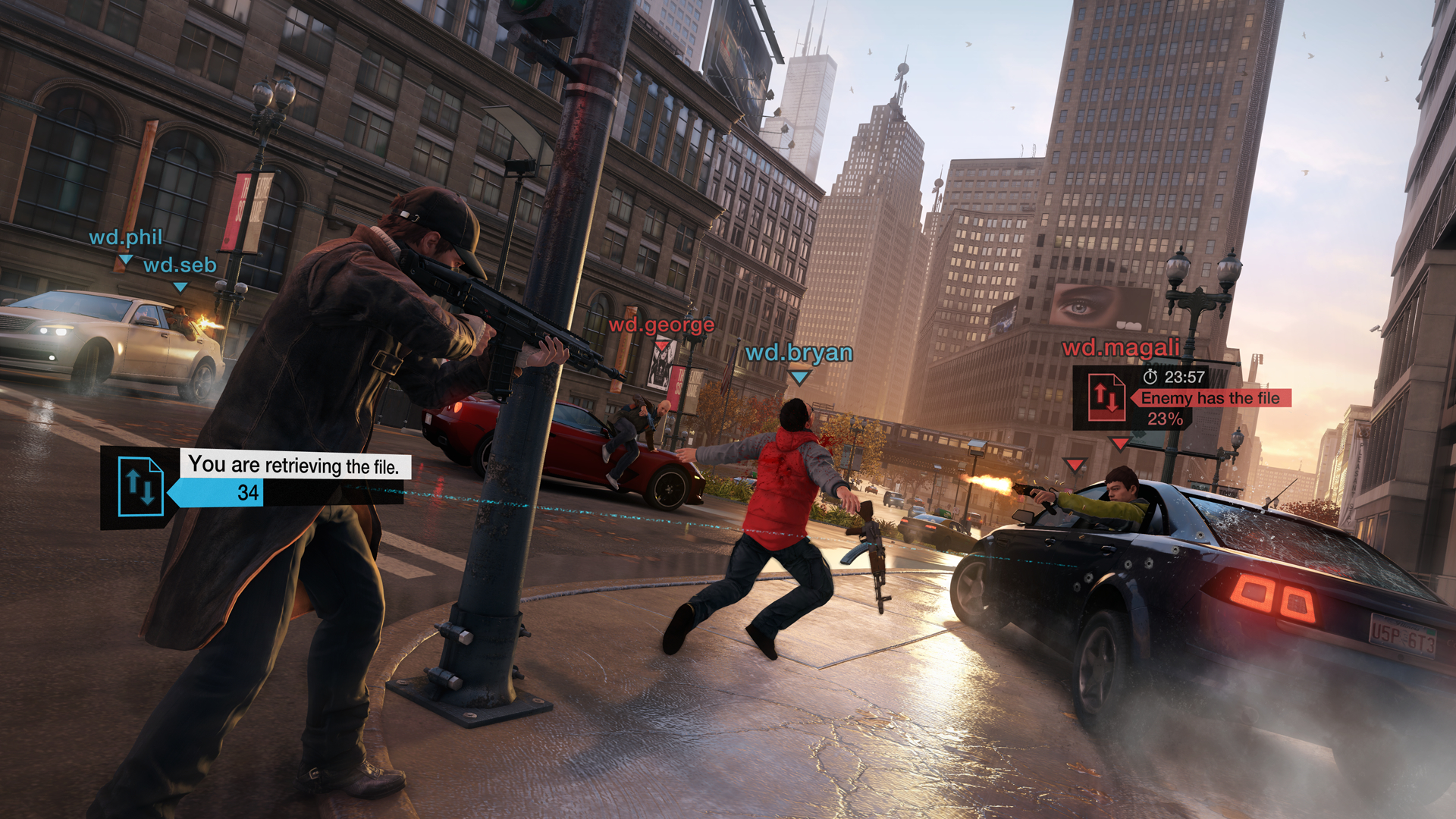Watch Dogs: a hacking utopia that's more real than you think
You've got a scud missile? That's cute, I've got a smartphone
Sign up for breaking news, reviews, opinion, top tech deals, and more.
You are now subscribed
Your newsletter sign-up was successful
"Every two weeks we'd discover something new and go 'Whoa, that's nasty'," says Geffroyd. "Over those three years one of our main aims was to be as authentic as possible, but occasionally we'd say 'is this too much? We know it's feasible but is it too crazy?' But it was so fun we actuality kept it. And then a few weeks later it was popping in the news."
"I'm glad we're going to release the game because we're going to look outdated in three months," jokes Geffroyd
Hotline Chicago
Having a centralised system was a convenient way of watering down the act of hacking itself but Ubisoft needed something more relatable for the player, not just for the sake of practicality but to drive the message of surveillance closer to home. The answer was a smartphone tucked into Aiden Pearce's leather trench coat.
"Phones have been giving us so many amazing things for the past six, seven years and we've been accepting terms and agreements without thinking for a second about that. It's all accept, accept, accept," says Geffroyd.
"So having this phone that we've had as a trojan horse in our private life - and for good reason because the tools they're offering are great - was the perfect symbol for us."

The end is finally in sight for Watch Dogs, which suffered a six month delay so that Ubi could refine its hacking playground. The realism the development team strived for went right down to the way the game's AI reacts to all of the unusual occurrences taking place in the city, and according to creative director Jonathan Morin, improving the AI was the biggest improvement those extra six months afforded.
"The AI between the police and the mobs, when they started interacting with each other and we started mixing three or four elements, it was not providing the experience we wanted to give the player," he says.
Sign up for breaking news, reviews, opinion, top tech deals, and more.
"Some situations mean combining a lot of different acts in a small area. And in doing that we had targeting system mistakes. You'd end up using stuff you didn't want to use, so we did polish that. It was important to make sure that all the systems would connect with each other, even when the most unlikely scenarios cases would arise. There were also moments when you would manipulate something while in stealth and it would expose your position."
Watch Dogs could become Ubisoft's next big franchise, or it could end up being a one-off title that the studio grows through DLC and multiplayer features. Whatever happens (and however good the final game actually is) right now it stands at a fascinating look at the terrifying potential of technology.
"We ended up [predicting] every news piece of the last two years. That wasn't expected, it just turned out that way," says Morin.
"It was part of the goal to make a game that would be relevant to today's world. We just didn't expect it would be so relevant."

Hugh Langley is the ex-News Editor of TechRadar. He had written for many magazines and websites including Business Insider, The Telegraph, IGN, Gizmodo, Entrepreneur Magazine, WIRED (UK), TrustedReviews, Business Insider Australia, Business Insider India, Business Insider Singapore, Wareable, The Ambient and more.
Hugh is now a correspondent at Business Insider covering Google and Alphabet, and has the unfortunate distinction of accidentally linking the TechRadar homepage to a rival publication.